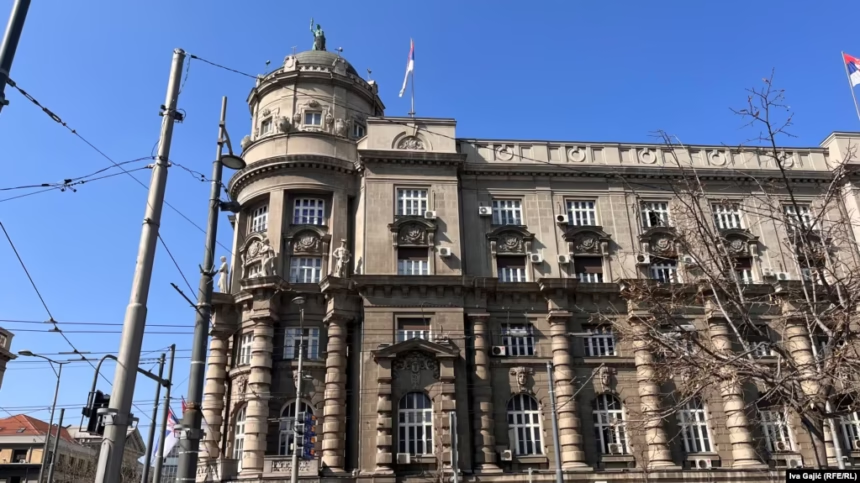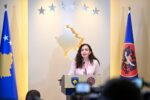Serbian Parliament Speaker Ana Brnabić has scheduled an extraordinary parliamentary session for April 15, during which members of Serbia’s new government will be elected, reports RFE.
This announcement was published on the official website of the Serbian Parliament.
According to Radio Television of Serbia (RTS), the candidate for Serbia’s prime minister, Đuro Macut, submitted the proposal for the composition of the new government on April 14, along with the biographies of the proposed members.
For the position of First Deputy Prime Minister and Minister of Finance, Sinisa Mali has been proposed, who previously held the same post. The Ministry of Internal Affairs is set to be entrusted to Ivica Dačić, who will also remain a Deputy Prime Minister.
Adrijana Mesarović has been proposed as Deputy Prime Minister and Minister of Economy. She also led this sector in the government of Miloš Vučević.
According to Macut’s proposal submitted to the Serbian Parliament, the following ministers are expected to retain their posts: Bratislav Gašić (Minister of Defense), Marko Đurić (Minister of Foreign Affairs), Dubravka Đedović Handanović (Minister of Mining and Energy), Zlatibor Lončar (Minister of Health), Nikola Selaković (Minister of Culture), and Milan Krkobabić (Minister for Village Care).
Dejan Vuk Stanković, a professor at the Faculty of Teacher Education in Belgrade, has been proposed as the new Minister of Education.
The Ministry of European Integration is expected to be entrusted to Nemanja Starović, who previously headed the Ministry of Labor, Employment, Veteran, and Social Affairs.
Milica Đurđević Stamenković, who was the Minister for Family Care and Demography in the previous government, has been proposed for the same ministry.
Dragan Glamočić has been proposed as Minister of Agriculture, Forestry, and Water Management; Sara Pavkov as Minister of Environmental Protection; Jagoda Lazarević as Minister of Internal and External Trade; Nenad Vujić as Minister of Justice; Snežana Paunović as Minister of Public Administration and Local Self-Government; and Demo Berisha as Minister for Human and Minority Rights and Social Dialogue.
Proposed ministers without portfolio include Novica Tončev, Đorđe Milikićević, Usame Zukorlić, Nenad Popović, and Tatjana Macura.
Serbian President Aleksandar Vučić entrusted the mandate to form the new government to endocrinologist and professor at the University of Belgrade Faculty of Medicine, Đuro Macut, on April 6. Prior to this, Vučić held consultations with parliamentary parties, in which the opposition did not participate.
The opposition proposed the formation of a transitional government, which was rejected by the ruling coalition.
The Serbian government has been operating in a technical mandate since March 19, when deputies in the Parliament verified the resignation of Miloš Vučević from the post of Prime Minister, starting the 30-day deadline for the election of a new government.
Vučević resigned after activists of the Serbian Progressive Party assaulted a group of students who were blocking the functioning of universities in Novi Sad.
The fall of Vučević’s government occurred at the peak of protests against the ruling authorities, led by students who had been blocking dozens of faculties across Serbia since late November 2024.
At the center of their demands, addressed to Serbia’s institutions, was the determination of legal and political responsibility for the deaths of 16 people in the collapse of a concrete shelter at the Novi Sad Railway Station on November 1, 2024.







